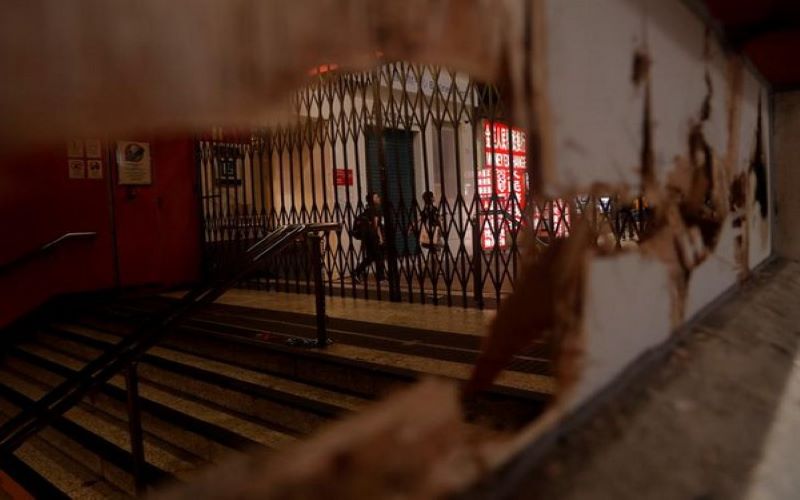Hong Kong: Transport networks, including Mass Transit Railway (MTR) stations, across Hong Kong partially reopened on Sunday after it was completely shut the day before in an unprecedented shutdown.
In an early morning statement cited by The Strait Times, the Transport Department said that some MTR stations remain closed due to “serious damage”. Many of those stations had been torched and trashed by protesters during violent demonstrations across the Asian financial centre on Friday night against the mask ban.
MTR Corporation said the stations were closed as it needed time to repair the damaged facilities.
All train services in Hong Kong, including the airport express line, were suspended on Saturday, a day after angry protesters vandalised businesses and railway stations over government’s introduction of a new anti-mask law.
The latest violence was triggered by the Hong Kong government’s decision to impose an anti-mask law that took effect at midnight on Friday. The controversial restriction bars anyone from wearing “facial coverings” during demonstrations, regardless of the assembly’s legal status, that is “likely to prevent identification”.
The stations that still remain closed include the major interchanges of Admiralty, Prince Edward, Mong Kok and Tai Wai, according to South China Morning Post.
A spokesman for the Hong Kong Monetary Authority was also quoted as saying that 10 per cent of the 3,300 ATM across the city could not function due to vandalism over the weekend, as of Saturday.
Hong Kong leader Carrie Lam Cheng Yuet-ngor imposed the ban in the hope it would quell several months of anti-government protests, which were sparked by the now-withdrawn extradition bill and have descended into regular outbreaks of violence.
On Sunday morning, a High Court judge was set to hear an urgent application from 24 pro-democracy lawmakers for a temporary suspension of the mask ban.
They argued that the government’s use of the Emergency Regulations Ordinance to enact a ban with criminal implications had disproportionately infringed on citizens’ rights and bypassed the city legislature, making it unconstitutional.

